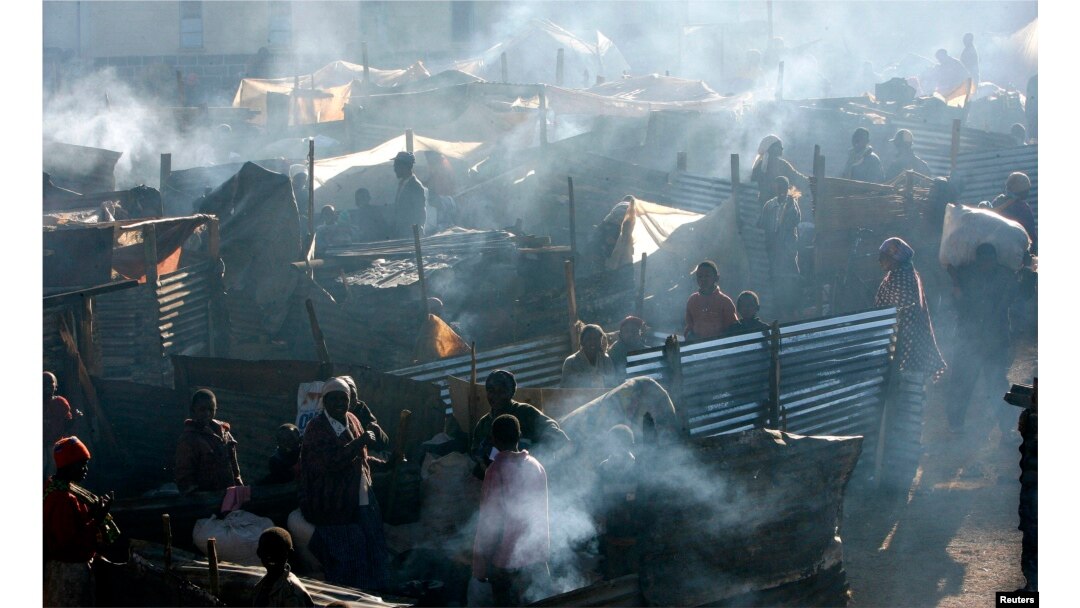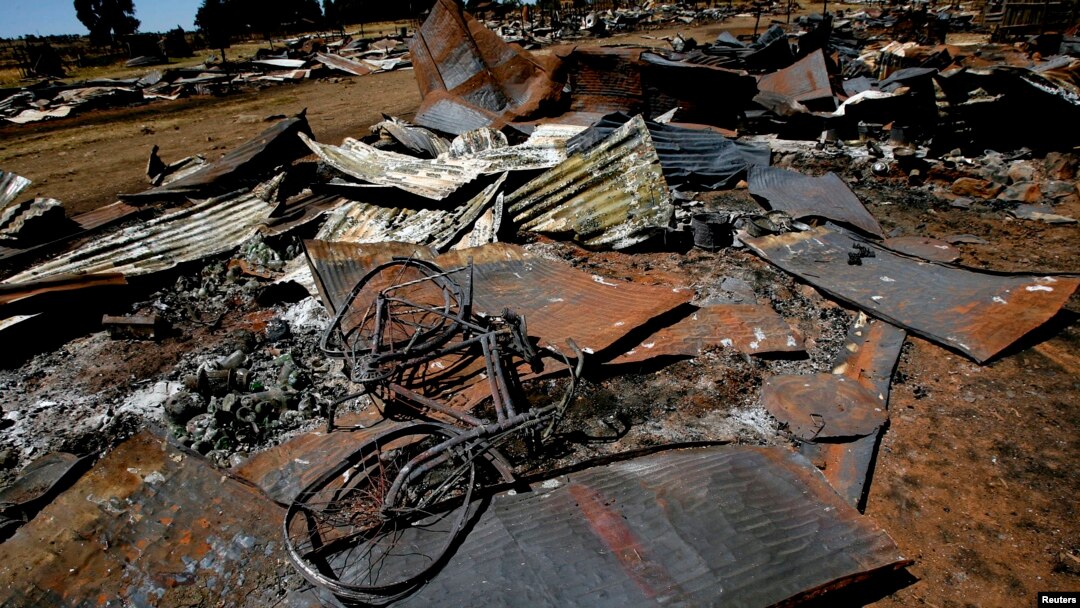BOMET, KENYA —
In Kenya, the Rift Valley region was the epicenter of ethnic clashes following the 2007 disputed presidential poll. With a new election just a few days away, some people are taking care to be outside the province this time, in case violence erupts again.
Five years ago, 44-year-old Peter Mureithi went to his ancestral home in Central province to vote. He voted there not because he feared or anticipated election-related violence, but to visit people back home.

In this election, Kikuyu and Kalenjin are in the same coalition, but Mureithi, a Kikuyu, said he fears for his life again.
He said, “What has made me to vote back at home again is what happened in 2007." He said he fears for his life in a place like Rift Valley, and he has decided to vote at home.
In a small garage in Bomet, Dickson Owino, a mechanic, said he was present in 2007 when ethnic Kikuyus were attacked because they supported a party that most of the local community was opposing.
He said, “In 2007 we were in one party, ODM." At that time those who were not in ODM like PNU they were affected. He said this time, even though lessons have been learned, you still do not know what will happen, so to be safe is to vote and go home.
He noted in this election his Luo community is supporting the CORD coalition, led by Prime Minister Raila Odinga, not the Jubilee coalition led by Uhuru Kenyatta and Eldoret North parliament member William Ruto.
Alexander Odhiambo, who is also a Luo, is a community worker in Bomet. He said even though he campaigns for peace in the region, he will leave nothing to chance, and he will also leave as soon as he cast his vote.
“I am involved in preaching peace, but honestly, personally, I am uncertain of the situation, me being a foreigner in this place Bomet," he said. "I believe that I have to put my safety first and maybe come back after the results are announced.”
Mr. Kenyatta and Mr. Ruto are accused of helping to organize the post-election violence five years ago, in which more than 1,100 people were killed. Both face trial at the International Criminal Court on charges of crimes against humanity.
Kenya’s coalition government feels it has carried out enough reforms to avoid a return of violence. But many Kenyans believe the reforms have fallen short.
Mureithi said he is tired seeing himself and other Kenyans feel unsafe every election period, and he hopes something will be done to stop the cycle of violence.
He said it is not a good life for a Kenyan. It will be good to see everyone whenever he is in the country to feel comfortable, not people fearing for their lives just because they happen to be in another part of the country. He said he hopes the next government will be one to bring peace, and people will never again be seen living from one town to another.”
Five years ago, 44-year-old Peter Mureithi went to his ancestral home in Central province to vote. He voted there not because he feared or anticipated election-related violence, but to visit people back home.

People displaced during post-election violence are seen in a temporary shelter in Burnt Forest, Kenya, Jan. 6, 2008.
Then, post-election violence displaced an estimated 600,000 people, and Mureithi was among them. His house and shoe shop in Kapsabet town in the Rift Valley were looted and vandalized during clashes between the Kalenjin and Kikuyu communities.In this election, Kikuyu and Kalenjin are in the same coalition, but Mureithi, a Kikuyu, said he fears for his life again.
He said, “What has made me to vote back at home again is what happened in 2007." He said he fears for his life in a place like Rift Valley, and he has decided to vote at home.
In a small garage in Bomet, Dickson Owino, a mechanic, said he was present in 2007 when ethnic Kikuyus were attacked because they supported a party that most of the local community was opposing.
He said, “In 2007 we were in one party, ODM." At that time those who were not in ODM like PNU they were affected. He said this time, even though lessons have been learned, you still do not know what will happen, so to be safe is to vote and go home.
He noted in this election his Luo community is supporting the CORD coalition, led by Prime Minister Raila Odinga, not the Jubilee coalition led by Uhuru Kenyatta and Eldoret North parliament member William Ruto.
Alexander Odhiambo, who is also a Luo, is a community worker in Bomet. He said even though he campaigns for peace in the region, he will leave nothing to chance, and he will also leave as soon as he cast his vote.
“I am involved in preaching peace, but honestly, personally, I am uncertain of the situation, me being a foreigner in this place Bomet," he said. "I believe that I have to put my safety first and maybe come back after the results are announced.”
Mr. Kenyatta and Mr. Ruto are accused of helping to organize the post-election violence five years ago, in which more than 1,100 people were killed. Both face trial at the International Criminal Court on charges of crimes against humanity.
Kenya’s coalition government feels it has carried out enough reforms to avoid a return of violence. But many Kenyans believe the reforms have fallen short.
Mureithi said he is tired seeing himself and other Kenyans feel unsafe every election period, and he hopes something will be done to stop the cycle of violence.
He said it is not a good life for a Kenyan. It will be good to see everyone whenever he is in the country to feel comfortable, not people fearing for their lives just because they happen to be in another part of the country. He said he hopes the next government will be one to bring peace, and people will never again be seen living from one town to another.”


